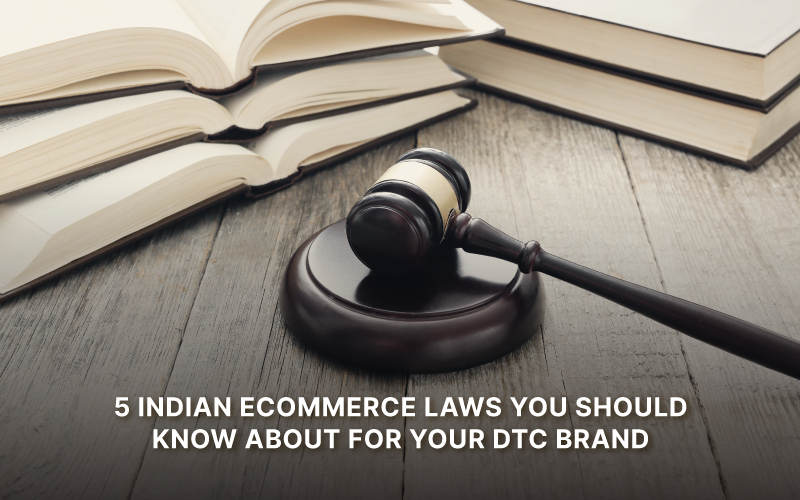It’s always good to have basic legal knowledge when running an online business. Here are some eCommerce laws that you need to know while running your D2C brand.
On pricing
Pricing your product is up to you. But you will have to display the maximum retail price (MRP) if you sell packaged products on your online store. The ministry of consumer affairs implemented the Packaged Commodity Amendment (2018) which mandates the display of MRP for all packaged commodities.
In the new rules and regulations for the Package Commodities Amendment, a small change has been made to the policy, the Metrology (Packaged Commodities) Amendment Rules, 2022, in rule 1, in sub-rule (2) shall substitute the figures, letters, and words “1st December 2022” for “1st October 2022”.
If you are an independent brand that sells packaged products, make sure you follow this eCommerce law. Showing accurate pricing details on products ensures transparency and repeat customers.
On tax and accounting
An eCommerce business has to pay different kinds of taxes – central, state and local. After the introduction of GST in 2017, tax and accounting rules have changed.
To understand and pay your tax liability, you need to do bookkeeping for your online business. Also, keeping accounts is a legal requirement in India.
On labelling and packaging
Legal Metrology Rules, 2011 states that the online platform must display requisite information about the commodities on display. This means that product details must be accurate. Make sure you write clear details about the product’s dimensions, weight, and other features on the product page.
Having a clear product description is not only a legal requirement but also influences buying decisions.
Here’s an example of a good product description on an online store:

Any eCommerce entity should also comply with laws related to packaging set by Legal Metrology Act, 2009.
On sales and shipping
The Sale of Goods Act covers what the sales and shipping policy of eCommerce businesses should contain.
Additionally, such as the warranties, conditions, and the transfer of property in goods. You must also include policies on shipping and return policies.
On contracts
All of the above points thrive on contracts. You are signing an agreement where both parties are agreeing to a certain condition. Sometimes, if not communicated rightly, agreements can quickly turn into disagreements and result in a dispute.
There are several contractual and dispute resolution laws that can help you protect your business and run it smoothly.
Learn about legal matters for your business and how to apply them
Here’s a free Mojoversity course for you to learn more about eCommerce laws and how to execute them easily. We collaborated with LegalWiz, to help businesses get acquainted with expected day-to-day interaction with business law.
Enrol for free and get started on your business!

